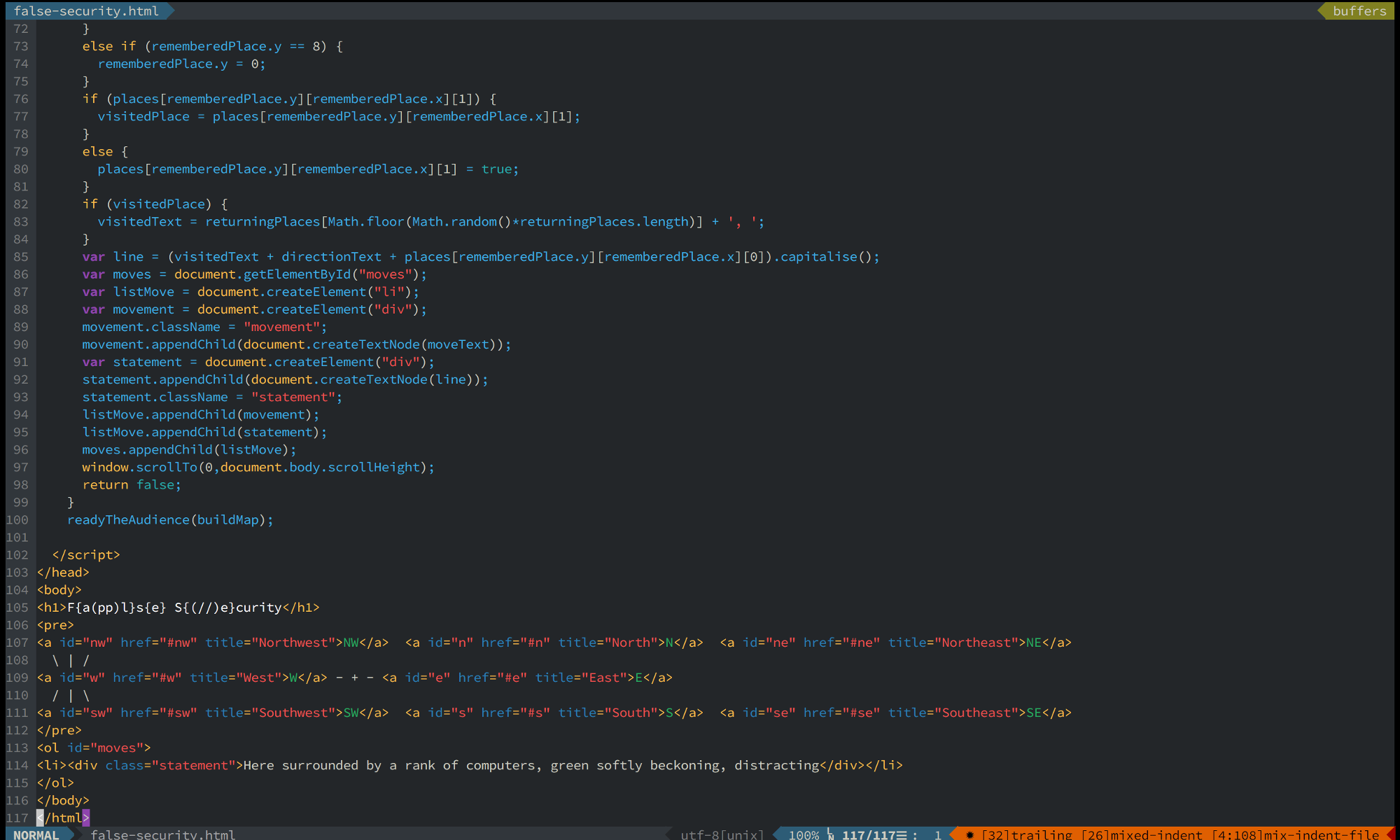The honours nonfiction lab I participated in, in first semester, provided a useful place to ground the nonfictional aspects of my research. In a way it oscillated until, I think, it synthesised. I started by being unsure of the importance of nonfiction to my research question and so I kept it external to my question. I then overemphasised its importance and attempted to position it directly in my question. Finally, I was able to recognise it as contextual to the research but not directly to the research question.
Attempting to unify my research to the nonfiction has been the most challenging aspect of the lab. My initially experience of the lab made me feel as if I need to push my research question directly onto nonfiction and make it stick. As my work is related to form first (programmable poetry being a form) and not content (and it seems nonfiction is a question of content first) I kept moving between research of the effects of the form to research of the effects of the content. In reading poetry, however, you are directly affected by both the form it is presented in and the content. Additionally, for programmable poetry there are kinetic aspects and non-trivial reader involvement.
The lab itself has been helpful by providing a wide context of both forms (genres) and content of the field of nonfiction, more specifically the theoretically aspects of the nonfiction examined. The lab environment also provided a space to discuss these ideas. By looking at the essay, the archive, documentary it gave me different views of what is ostensibly the same material, the nonfictional. I had, prior to the lab, already an interest in a range of nonfictional media—graphic novels, film and audio documentaries and essays—but mostly as separate forms and not directly related to their theoretical questions.
In interrogating how I would use the nonfictional in my research I was able to explore genres I hadn’t really considered. Within poetry, this meant exploring the lyric essay, ecopoetry and docupoetry. These three forms also provide an interesting mix between form and content. They all require a poetic form and arguably nonfictional content. My question, which is about the event in programmable poetry, can be placed alongside these genres, if only as a way to compare the differences between print forms and programmable forms. What, for instance, changes when we have a programmable ecopoetics? What is the programmable event when it expresses a relationship to the natural world (does it require a reader)?
The other lab members’ research questions gave another method of understanding nonfiction. By looking at Sophie’s work with audio and memoir, Romana’s sudden memoir, Adrian’s psychogeography and writing, and Dean’s interactive documentary, they gave me additional insight into methods of nonfiction and a different way to think about my question. The most effective points during the lab, in relation to the interdisciplinary aspects, were when we discussed each other’s work. The initially presentations, along with other times we directly discussed our projects, gave a grounding to an application of nonfiction. I did at times find what we covered in the labs abstract to my own practice but as a broad coverage it gave me more confidence in how I would use nonfiction in my research.
